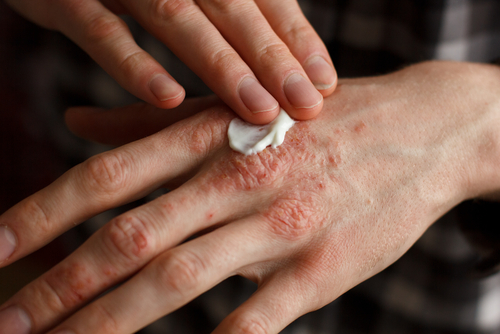 Psoriasis is a persistent inflammatory skin disorder that affects up to 3% of the population. It typically presents with deep red bumps and patches with an overlying thick white or silvery scale.
Psoriasis is a persistent inflammatory skin disorder that affects up to 3% of the population. It typically presents with deep red bumps and patches with an overlying thick white or silvery scale.
Psoriasis is generally thought to be a genetic disease that is triggered by environmental factors such as trauma to the skin, infection, and certain medications. These lead to an autoimmune attack on the skin. Psoriasis can also affect the nail as well as joints (psoriatic arthritis) and has now even been linked to other diseases (comorbidities) such as: diabetes, heart disease, hypertension, and even cancer.
Because it tends to be a chronic lifelong disease with variable courses, it is important to be evaluated and managed by a board-certified Dermatologist. While psoriasis can not be cured, there has been remarkable progress in the treatment of this disease in recent years. There are now many forms of treatment to help clear and maintain control of all forms of the disease and restore quality of life.
